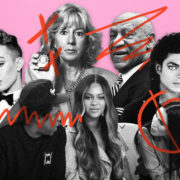Make Outrage Great Again

The outrage coming up on my feed felt performative, every day there was something new to be angry about, post about, that it all felt overwhelming and I just couldn’t keep up.
Contribution by Keah Lily.
Since the start of the pandemic, we have seen a significant increase in time spent online, with people seeking new ways to stay connected and stay informed. Many of us now turn to Twitter for our morning news updates, what’s going on in the world about and what we should be concerned about today. I guarantee if you open one of your social media apps right now you will already be behind on the latest outrage. Postdoctoral researcher William Brady found Social media platforms like Twitter amplify expressions of moral outrage over time because users who learn such language gets rewarded with an increased number of “likes” and “shares”.
I spoke to my manager about how I felt much of the outrage coming up on my feed felt performative, every day there was something new to be angry about, post about, that it all felt overwhelming and I just couldn’t keep up. This year we have seen post after post of moral outrage (and rightly so) with posts “What’s happening in India” “What’s going on in Palestine” “What’s happening in Columbia” “What’s happening in Cuba” the list is endless, all of this being shared with captions ‘share this now’. It’s overwhelming. On the one hand, I don’t want to seem that I do not care about these issues, but on the other, I do not want to post about serious issues I do not fully understand. My manager recommended the book ‘Outraged’ by Ashley ‘Dotty’ Charles, she loved it and said it would speak directly to me. She was right Dotty covered serious issues in a way that felt she was just chatting to me. The title of this piece is taken from one of the chapters in the book where Dotty explains ‘We don’t need to care less; we just need to care better’ as she steers us towards more meaningful activities, as opposed to meaningless tweets and global outrage towards celebrities and high street stores.’
Moral outrage is a powerful emotion, that motivates people to shame and punish wrongdoers. In many cases, the use of social media can be an incredibly powerful tool in exposing grave wrongdoings. Take the murder of George Floyd. The mobile phone footage of Derek Chauvin’s foot on his neck went viral worldwide via platforms like Twitter, Instagram and Facebook. Leading on from this, social media platforms were used to organise mass protests around the world in support on Black lives, all using the same hashtag #blacklivesmatter. Cases like this social media can be incredibly powerful in sharing moral outrage and creating social change.
However, there is also a more sinister side to outrage being shared online. Social media content is far more likely to be shared and retweeted if it expresses moral outrage. So even if you are not outraged, or disgusted by what you have seen, it could be in your interest to pretend that you are. Research from neuroscientist Molly Crockett suggests many people engage in moral outrage online as a way to enhance their character and how they are seen online, as opposed to genuinely caring about the cause they are posting about. Dotty covers this perfectly as she writes ‘Being outraged allows you to take the moral high ground… It lets you say ‘I am offended and therefore I am principled.’ Essentially sharing your disgust online enhances your character and improves how you are seen by others.
I was reading ‘Shitstorms and Snowflakes’ a chapter in Outraged where Dotty suggests ‘Imagine we took the efforts we are investing so freely into the takedown of people and focused them into the destabilisation of power structures.’ As I was reading this exact chapter, American rapper DaBaby was under fire in response to his homophobic and misogynistic comments at Rolling Loud Miami. Some of his comments included:
“If you didn’t show up today with HIV, AIDS, or any of them deadly sexually transmitted diseases that’ll make you die in two to three weeks, then put your cell phone lighter up”
And
“Ladies, if your pussy smell like water, put your cell phone lighter up. Fellas, if you ain’t sucking dick in the parking lot, put your cell phone lighter up.”
Celebrities such as Elton John, Demi Lovato, Madonna and many more took to social media expressing their moral outrage towards DaBaby and within hours the situation was trending. A few days later and the moral outrage online had died down and I couldn’t help but think Dotty was right, outrage towards celebrities is meaningless, going on Instagram to condemn DaBaby is not activism. Other than DaBaby being dropped from some festival lineups and losing his BoohooMan contract, in what ways did this online outburst go towards improving the lives of those identifying as LGB (Lesbian, Gay, Bi-sexual)? I looked up some stats and figures and was shocked to find out the number of LGB people who have experienced hate crime because of their sexual orientation had risen by 78% in Britain since 2013. Closer to home, in London, Tower Hamlets a fifty-year-old man was killed and is being treated as a homophobic hate crime, in August 2021. Further afield in Brazil, in 2019 they reported 329 violent deaths of LGBT+ people (with the actual number expected to be much higher).
Surely, we could be doing much more to change these harrowing facts than simply sharing and reposting to cancel a celebrity. I reached out to a colleague and friend of mine Claire Harvey, to ask her thoughts and what change she would like to see. Claire is a gay woman, Global Inclusion Lead at Vodafone and ex-Paralympian. Claire grew up under Section 28, where it was illegal for schools to ‘promote’ homosexual lifestyles, so anything outside of straight/heterosexual relationships was not discussed or normalised in schools. Looking back now, Claire believes this was extremely damaging for people who grew up in her generation. As they were made to believe there was something wrong with them, that they were not right or not normal.
In terms of creating change and what Claire would like to see more of the emphasis was on education. She saw this as important on two levels. Firstly, being it is important for young people to understand and contextualise the world around them, if we learn early on that gay couples, gay families are normal and this doesn’t make anybody better or worse, just different and that’s okay. This creates a safe space for young people to explore and ask questions, eradicating the fear and myth that has traditionally been associated to same-sex couples, non-binary and trans people. Secondly, Claire saw this as important to the young people who are LGB, we know there are increased mental health challenges, self-harm, suicidal tendencies in this population of young people. Not because they are LGB, but because of the environment around them.
I questioned Claire’s argument for better education as there are many parents who worry teaching children about LGBT+ will make them turn into that. Claire responded ‘teaching people that something exists does not make someone turn into something or other. If that were true there would be no gay people in the older generations, as they were all taught straightness existed and they didn’t turn out straight.’
With Dotty’s book in mind and Claire’s words still fresh, I thought tangible actions I would take away from this, the next time a celebrity made disgusting comments like the ones DaBaby, rather than cancel him online, if you care, use that energy to create change. Email your local MP about the importance of early education on LGBT+ in schools, do your research, organise a campaign, engage and create meaningful activism that destabilises the power structures and create social change. We still need outrage, as Dotty writes ‘by all means get angry. Get as angry as you possibly can. But do it with an ambition that extends beyond social media kudos’.
Contribution by Keah Lily.
Check out the GUAP Arts & Culture section, to discover new art, film, and creative individuals.

